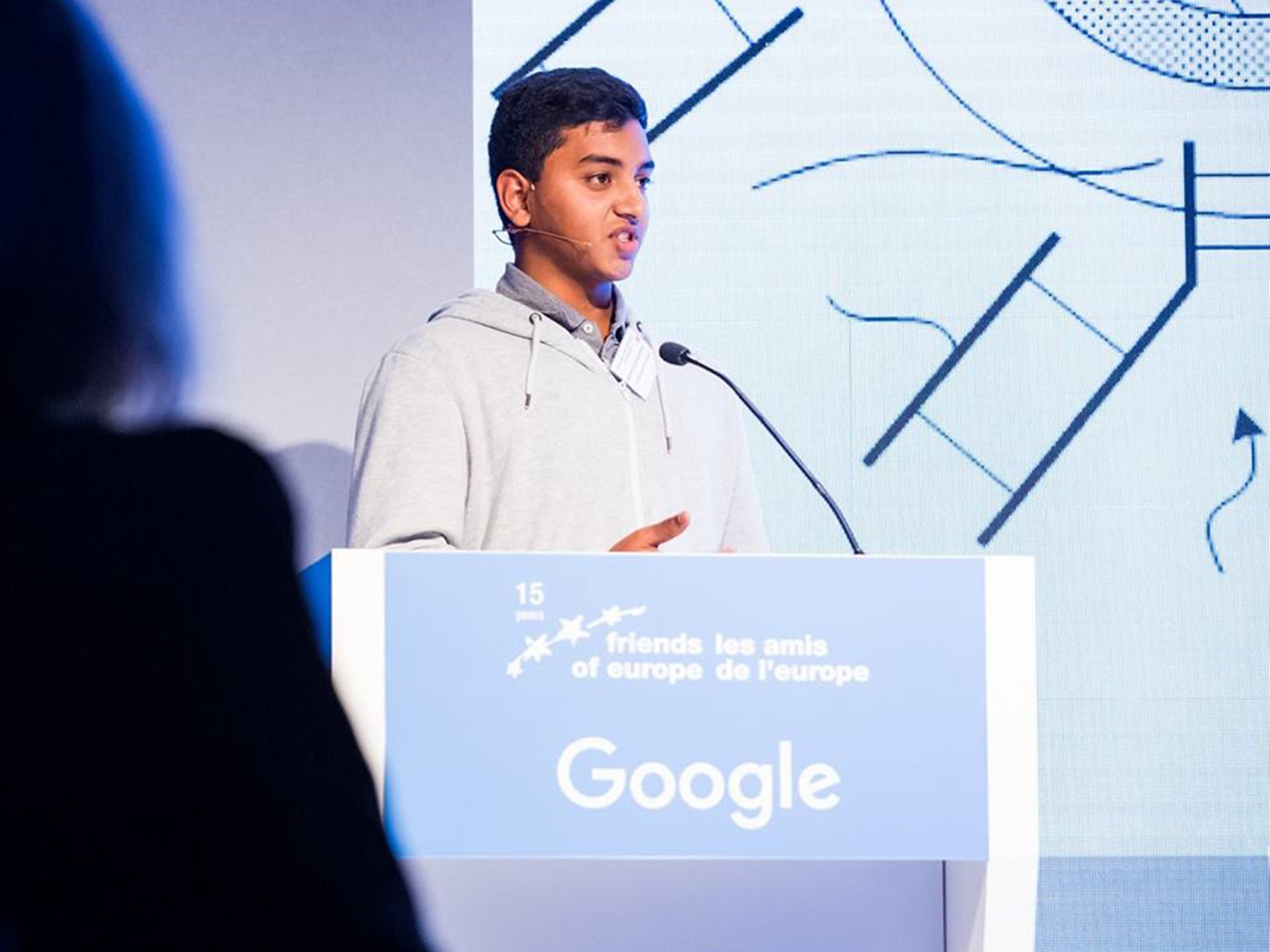Breast cancer treatment breakthrough claimed by 16-year-old boy
Krtin Nithiyanandam is hoping to gain interest from the scientific community to develop the work further

Your support helps us to tell the story
From reproductive rights to climate change to Big Tech, The Independent is on the ground when the story is developing. Whether it's investigating the financials of Elon Musk's pro-Trump PAC or producing our latest documentary, 'The A Word', which shines a light on the American women fighting for reproductive rights, we know how important it is to parse out the facts from the messaging.
At such a critical moment in US history, we need reporters on the ground. Your donation allows us to keep sending journalists to speak to both sides of the story.
The Independent is trusted by Americans across the entire political spectrum. And unlike many other quality news outlets, we choose not to lock Americans out of our reporting and analysis with paywalls. We believe quality journalism should be available to everyone, paid for by those who can afford it.
Your support makes all the difference.A 16-year-old boy claims to have discovered the cure for one of the most dangerous forms of breast cancer.
Krtin Nithiyanandam from Epsom, Surrey, believes he has found a way to turn the most deadly form of triple negative breast cancer into one which is responsive to treatment.
The teenager, who won the Google Science Fair in 2015 for creating an Alzheimer’s test which can spot early signs of the disease, has been working on the therapy in his school lab.
“Most cancers have receptors on their surface which bind to [treatment] drugs like Tamoxifen but triple negative don't have receptors so the drugs don't work," Krtin told The Telegraph.
"The prognosis for women with undifferentiated [where the cells get stuck in a dangerous aggressive form] cancer isn't very good so the goal is to turn the cancer back to a state where it can be treated.
“The ID4 protein actually stops undifferentiated stem cell cancers from differentiating [a form where the cells tend to grow and multiply slowly] so you have to block ID4 to allow the cancer to differentiate.
"I have found a way to silence the genes that produce ID4 which turns cancer back into a less dangerous state," Krtin added.
Krtin is hoping to gain interest from the scientific community to develop the work further.
Around 7,500 women are diagnosed with triple negative breast cancer every year.
Join our commenting forum
Join thought-provoking conversations, follow other Independent readers and see their replies
Comments